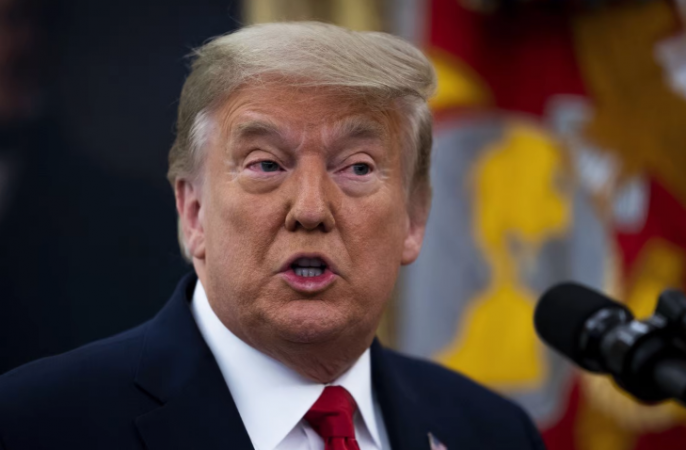
United States: The Justice Department announced Friday that FBI agents this week searched the Florida home of former US President Donald Trump and removed 11 classified documents, some of which were marked as top secret. The Justice Department also disclosed that the probable reasons for carrying out the search were in violation of the Espionage Act.
Four days after agents searched President Trump's Mar-a-Lago property in Palm Beach, the search warrant and related documents that accompanied it were made public. One of three laws listed in the warrant application, the Espionage Act adopted in 1917, makes it illegal to disclose information that threatens national security.
In a post on his social media channel, Trump claimed the documents were "all declassified" and stored in "secure storage."
He said there was no need to "seize" anything. According to the Republican businessman-politician, he could get it whenever he wanted, without getting involved in politics and breaking into Mar-a-Lago.
The discovery was made as part of a federal investigation into whether Trump improperly removed documents after he lost the presidential election to Democrat Joe Biden two months earlier in January 2021.
Three laws cited as grounds for warrants make it a crime to mishandle government records, regardless of whether they are classified, even though the FBI removed material that was classified Monday. So Trump's claim that he declassified the documents would not be relevant to the alleged legal violations.
A list of items taken by FBI agents revealed they removed more than 30 items, including more than 20 boxes, photo binders, a handwritten note, and executive clemency orders from Trump aide and longtime adviser Roger Stone. . The list also includes details about the "President of France".
The warrant revealed that FBI agents were asked to search the "45 Office", a room on the property used by Trump or his employees, as well as any other rooms, structures, or buildings on the property where the boxes Or documents could be kept. , Trump was the 45th President of America.
In the warrant application, which was approved by US Magistrate Judge Bruce Reinhart, the Justice Department claimed there was reason to believe there was a breach of the Espionage Act at Trump's residence.
That law was initially passed to thwart espionage. Before the Justice Department extended its use under both Trump and his predecessor Barack Obama to prosecute those leaking information about national security, including leaks to the media, prosecutions under it were relatively rare.
The cited section of the law to warrant prevents unauthorized possession of information relating to national defence. It omitted to elaborate on the suspicion of investigators that such a breach had taken place.
The Espionage Act has been employed in key cases recently by the Justice Department, including cases involving WikiLeaks founder Julian Assange, former military intelligence analyst Chelsea Manning and former National Security Agency contractor Edward Snowden.
The application also stated that there was probable cause to believe that two additional laws, which make it illegal to conceal or destroy official US documents, had been broken.
Sensitive government information is classified into three categories: top secret, secret and confidential.
The highest level, "top secret", is reserved for the most confidential US national security information. Because their disclosure could pose a serious threat to national security, such documents are usually kept in special government facilities.
FBI agents collected four sets of top secret documents, three sets of secret documents and three sets of confidential documents on Monday, according to information released Friday. The agents had collected a collection of papers marked "Classified / TS / SCI Documents", which stands for top secret and sensitive compartment information.
There is no criminal case pending against Trump. It was not yet known whether charges would be filed.
Legal experts predicted that if Trump were to ever face charges, claims he had declassified material would not be a strong defense.
The Espionage Act, according to Northwestern University law professor Heidi Kitroser, "doesn't even strictly require that information be classified as long as it pertains to national defense."
US Attorney General says he authorized search of Donald Trump’s home
US Appeal court sides with House in fight over Donald Trump tax returns